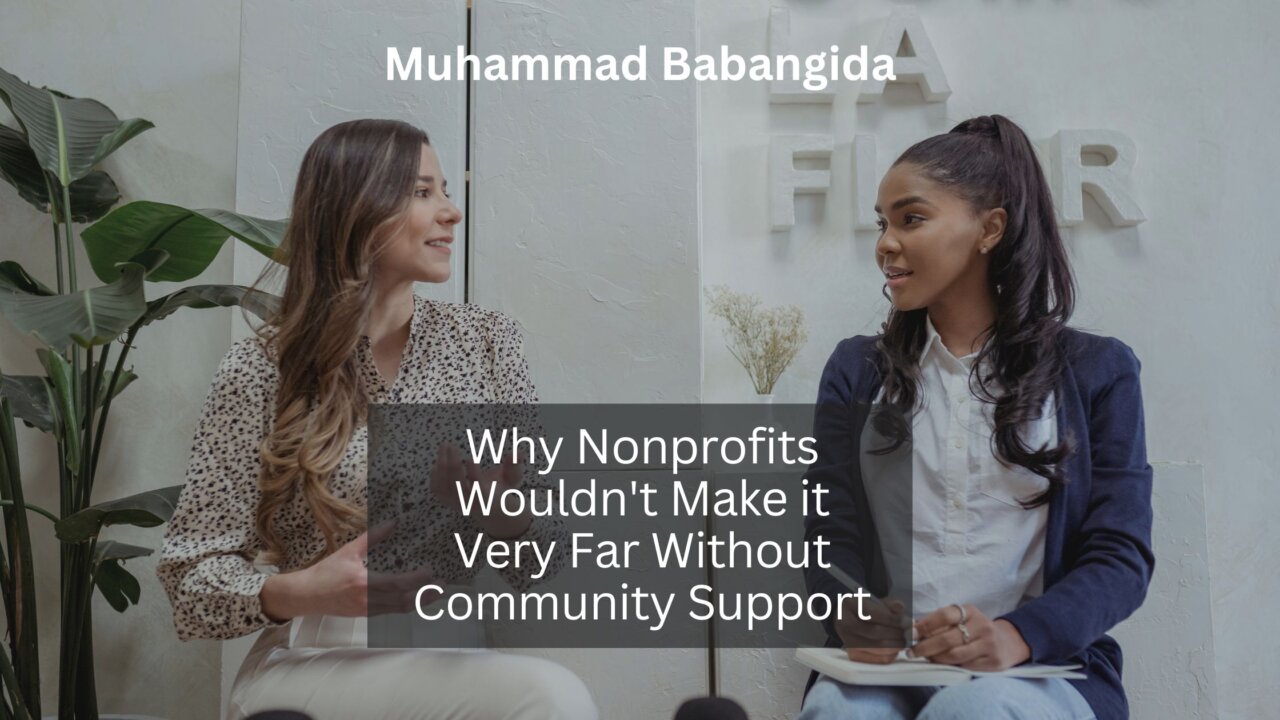The purpose of nonprofit organizations is to address various social issues, advocate for change, and provide essential services to communities. However, the sustainability and impact of nonprofits heavily depend on the support they receive from the communities they serve. Here are compelling reasons why nonprofits wouldn’t make it very far without strong community support:
Financial Stability:
Nonprofits often rely on donations, grants, and fundraising efforts to sustain their operations. Without the financial support of community members, these organizations may struggle to meet their budgetary needs. Community contributions, whether large or small, collectively form the financial backbone that allows nonprofits to continue their vital work.
Resource Accessibility:
Beyond monetary support, nonprofits also benefit from in-kind contributions and volunteerism within the community. Donated goods, services, and time from community members provide nonprofits with valuable resources that enhance their ability to fulfill their missions. From volunteer hours to donated supplies, these resources contribute to the overall effectiveness of nonprofit initiatives.
Advocacy and Awareness:
Community support is instrumental in raising awareness about the causes championed by nonprofits. Individuals within the community often become ambassadors for these organizations, spreading the word, advocating for change, and mobilizing support. Grassroots efforts initiated by community members can amplify the impact of nonprofits by reaching a wider audience and garnering public attention.
Local Expertise and Cultural Sensitivity:
Nonprofits that directly engage with communities benefit from local expertise and cultural sensitivity, ensuring that their programs meet the needs of the population they serve. Community members contribute valuable insights, helping nonprofits design initiatives that are both effective and culturally relevant.
Built-In Support Networks:
Community support provides nonprofits with built-in networks of trust. When community members actively endorse and support an organization, it establishes credibility and fosters trust among potential donors, partners, and collaborators. This trust is crucial for sustaining long-term relationships and partnerships that are vital for a nonprofit’s success.
Increased Volunteer Engagement:
Volunteers are essential to continuing the good work of nonprofits. Without community members offering their time and skills, nonprofits would struggle to carry out their programs and initiatives. The passion and commitment of local volunteers amplify the impact of nonprofit work, creating a ripple effect that extends far beyond the organization itself.
Adaptability and Resilience:
Communities often serve as pillars of strength during challenging times. Nonprofits may face unforeseen obstacles or changes in the socioeconomic landscape, and it is the collective support of the community that enables these organizations to continue serving their communities.
In essence, nonprofits and communities share a symbiotic relationship. Nonprofits bring about positive change and address pressing issues, while communities provide the essential support systems needed for these organizations to thrive. The success and longevity of nonprofits hinge on the understanding that their impact is not just measured by their programs but also by the strength of the bonds they build with the communities they serve.
